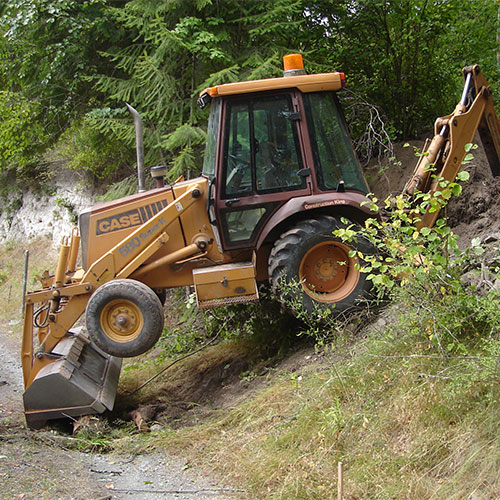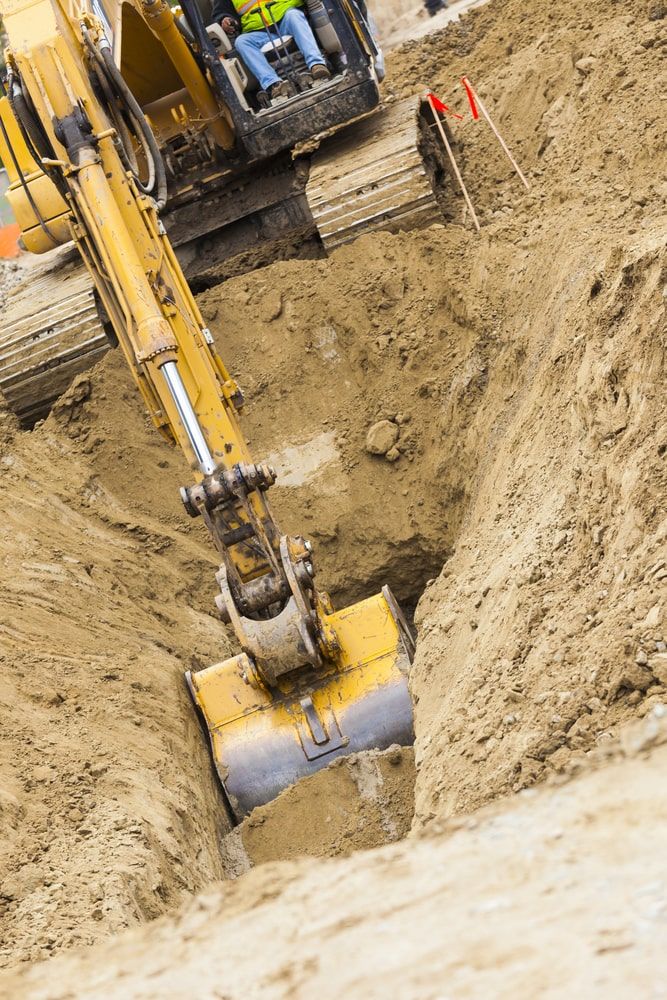Comprehensive Excavation Approaches: Mastering the Principles for Success
The mindful preparation, exact execution, and precise attention to detail required in excavation projects require a thorough strategy that incorporates various fundamental aspects. The true mastery lies not just in recognizing these principles however in effortlessly integrating them to navigate the intricacies of excavation jobs with finesse.
Understanding Excavation Task Preparation

Effective excavation tasks are improved the structure of detailed and meticulous preparation. The initial stage of any excavation project is the planning stage, where vital decisions are made that can substantially affect the outcome of the task. During this stage, it is necessary to gather all appropriate information about the site, including topographical surveys, soil composition, and any kind of potential hazards that might exist. Comprehending the project budget plan, timeline, and range restraints is essential for producing a comprehensive excavation plan that makes sure the task's success.
One key facet of excavation job planning is the advancement of an in-depth timeline that outlines the series of activities, target dates, and milestones. By meticulously thinking about all these elements during the planning stage, excavation projects can be implemented effectively and effectively, leading to successful results - lancaster trenching.
Dirt Analysis and Website Evaluation
Conducting comprehensive soil evaluation and site analysis is an important action in the prep work phase of any type of excavation project. Dirt evaluation involves identifying the composition, framework, and homes of the dirt at the excavation website. This info is vital for recognizing the soil's bearing ability, wetness material, and capacity for erosion, which are vital consider determining the excavation techniques and equipment needed for the job.
Site examination exceeds dirt analysis and includes a more comprehensive analysis of the overall site problems. This analysis includes determining any kind of potential threats, such as underground utilities, ecological issues, or unpredictable surface, that could impact the excavation process. By completely evaluating the website, job managers can create reliable excavation strategies that focus on safety and security, efficiency, and ecological protection.
Making use of advanced technologies like ground-penetrating radar, soil sampling, and drone studies can boost the accuracy and efficiency of soil evaluation and website examination. Spending time and sources in these initial actions can ultimately conserve time and protect against costly delays or difficulties during the excavation process.
Equipment Choice and Application
Reliable excavation jobs depend greatly on critical tools choice and use to ensure optimum performance and efficiency. Selecting the best equipment for the job is essential in making the most of performance and reducing downtime. Factors such as the type of soil, depth of excavation, and job scope play a considerable role in establishing one of the most ideal devices for the job available.

Along with selecting the proper helpful hints tools, appropriate use is crucial to task success. Operators needs to be educated to deal with the devices safely and successfully - excavating ohio. Routine upkeep checks and prompt fixings help prevent break downs and guarantee consistent performance throughout the task
Precaution and Regulations Conformity
In the world of excavation jobs, prioritizing safety and security actions and conformity with laws is vital to making sure a legally audio and safe and secure functional atmosphere. Security steps include a variety of methods, including conducting complete website evaluations, carrying out proper signs and barriers, and providing appropriate safety and security training for all personnel associated with the excavation procedure. Adherence to guidelines, such as OSHA needs in the USA, makes sure that the excavation project meets the needed criteria to secure workers, spectators, and the surrounding environment.

Monitoring Progression and Adjusting Techniques
Just how can predict managers efficiently track the advancement of excavation jobs and adjust their methods accordingly to enhance results? Surveillance progression is necessary for making certain that excavation tasks remain on track and fulfill due dates.

Conclusion
Finally, grasping the fundamentals of thorough excavation strategies is important for the success of any kind of job. By understanding task planning, evaluating soil and website conditions, picking ideal devices, adhering to safety and security policies, and monitoring development, project supervisors can ensure a smooth and reliable excavation procedure. Carrying out these methods will bring about successful end results and reduce potential threats or problems throughout the excavation job.
The preliminary phase of any type of excavation task is the preparation stage, where critical choices are made that can considerably influence the outcome of the task. Understanding the job scope, budget plan, and timeline constraints is essential for developing an extensive excavation strategy that guarantees the task's success.
Just how can project managers successfully track the advancement of excavation projects and adapt their approaches accordingly to maximize end results? By carefully keeping an eye on progress and being ready to adapt methods, project supervisors can enhance the look at this site overall success of excavation projects.
By recognizing project preparation, analyzing soil and website conditions, selecting ideal equipment, complying with safety regulations, and monitoring progression, job managers can guarantee a smooth and reliable excavation procedure.